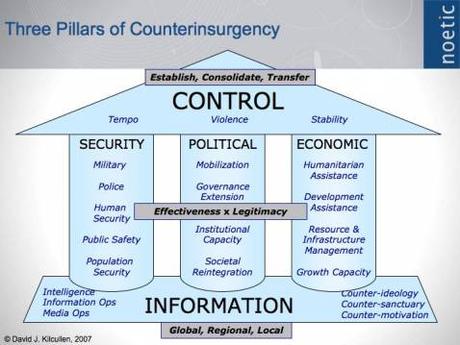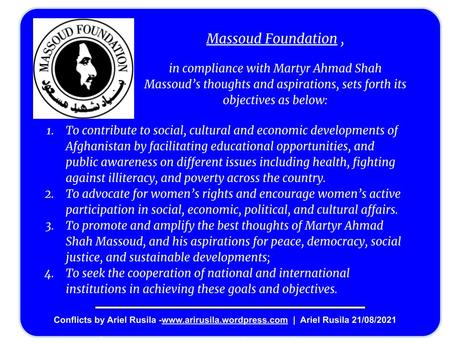On Aug. 2021 the Taliban was taking over provinces one by one till they finally reached the power centre, Kabul. However while the militants appear firmly in control, some prominent figures vowed to continue resistance as protests erupted in two cities and millions of Afghans parsed clues about the Taliban’s intentions. So the anti-Taliban war is not over, it’s starting and not hopefully only in Afghanistan.
Since the collapse of Kabul, there has been a comparison with similar events in Vietnam. Images of the evacuation of Americans from the embassy are similar, as are the inability of government forces to resist the occupiers. However, the main difference is in the opponent: Vietcong was superior in both manpower and skill compared to the Taliban. The only similarity was in the spirit of struggle, based on the former to Communism and the latter to radical Islamism.
Taliban fighters are mostly inexperienced poorly trained madrasa students just to know how to follow the orders of their Mullahs. Now they have very sophisticated weapons seized from government forces but it takes time to learn how to use this arsenal. The strength of Taliban forces is estimated to be between 70 000 – 100 000 fighters so it is not any wide people’s army.
However Taliban has been a powerful grass roots movement in the last decades in Afghanistan. The Taliban insurgents have been doing much more than the Afghan government to establish good governance and accountability. In the remote provinces, the Taliban’s efforts have reinforced two images: on the one hand an absent and/or corrupt Afghan central government and effective and accountable Taliban administration on the other. The Taliban has been answering better to the needs of ordinary citizens than the U.S. and their puppet government in Kabul. This is the base to their success and I can agree that Talibans have real support in conservative countryside and provinces.
Base of a mass uprising
There is a wide anti-Taliban spirit based on experience or hope of better life and freedom without Taliban rule. Also there is fear that the Taliban will act like before. In urban areas, girls have been able to go to school, women have been able to work in demanding positions, for example in the media. The younger generation has gotten a glimpse of Western freedom, entrepreneurs have seen more earning opportunities than just drug trafficking. This operating environment, especially in urban areas, lays the foundation for an anti-Taliban uprising.
One should note that many warlords did not surrendered, they moved with their militia and arms e.g. to Uzbekistan. Also part of Afghanistan airforce – tenths of aircrafts and pilots – moved to Uzbekistan.Already now the anti-Taliban demonstrations have begun. For example Taliban fighters used gunfire to disperse demonstrations in the northeastern city of Jalalabad and the southeastern city of Khost, with some of the protesters raising the Afghan government flags that the Taliban had taken down just days earlier. News reports said two or three people were killed in Jalalabad. Similar events have occurred across the country.
Taliban does not rule the whole Afghanistan
Though the Taliban hold control of nearly all of the country, some prominent figures continued to hold out with a corps of loyal fighters, saying they do not recognize the Taliban as legitimate rulers. One of them, Amrullah Saleh, the vice president in the toppled government, claimed that Mr. Ghani’s flight from the country had made him the acting president. Mr Saleh is getting support from Defense Minister Gen. Dismillan Mohammad as well Norhern Alliance leader Ahmad Massoud.
Panjshir valley has newer been occupied or captured by any external force – not USSR in 80s, not Taliban 90s and not now. The Panjshir valley north of Kabul is still littered with the wrecked carcasses of Soviet armoured vehicles destroyed in unsuccessful battles to conquer it, and the region also held out against the Taliban when they ruled Afghanistan in 1996-2001.
Mr. Saleh is allied with a regional leader, Ahmad Massoud, whose father, Ahmad Shah Massoud, was the leading anti-Taliban commander a generation ago, until he was assassinated two days before the Sept. 11 attacks. Ahmad Shah Massoud always struggled and hoped for an independent, self-sufficient, and strong Afghanistan with a just and democratic political system. He was respected, and would always insist on democracy, and inclusive elections where both men and women could participate.
Ahmad Massoud, the 32-year-old son of Ahmad Shah Massoud,has pledged on Aug 19th 2021 to hold out against the Taliban from his stronghold in the Panjshir valley.
“We have stores of ammunition and arms that we have patiently collected since my father’s time, because we knew this day might come,” he said according Reuters, adding that some of the forces who had joined him had brought their weapons. “If Taliban warlords launch an assault, they will of course face staunch resistance from us,” he said.
He said his forces would not be able to hold out without help from the West and he appealed for support and logistical help from the United States, Britain and France.
“The Taliban are not a problem for the Afghan people alone. Under Taliban control, Afghanistan will without doubt become ground zero of radical Islamist terrorism; plots against democracies will be hatched here once again,” he said
Three scenarios
In my opinion there is now three scenarios how the situation is developing during next weeks and they are as follows:
- Zero-option
- Humanitarian intervention
- Coin implemented by anti-Taliban forces
The zero-option is already ongoing, the actions are focused to ad hoc evacuation of foreigners from Afghanistan and to secure Kabul airport so long that they are out with so many Afghans than possible.
In my view the probable outcome will be that in one month the most part of Afghanistan, including Kabul, is under the Taliban rule meaning sharia law, some ethnic cleansing, some massacres, throwing basic human rights to trash, big amount of Afghan refugees inside and outside the country and naturally a human catastrophe e.g. due lack of food. The international community will react to this with some high flow statements and humanitarian aid to refugee camps.
Humanitarian intervention better sooner than later is unlikely and/or expensive. Fast decisions could be made only in U.S. and Russia and the best scenario would be a joint operation, first airstrikes and then ground operation.
Sure effective counter-insurgency (aka “Coin”) operation – implemented be U.S. and Russia, financed partly EU i.a. – could be solution. Effective means that some 600 000 counter -insurgents/soldiers should be send to Afghanistan as soon as possible to work in cities, villages and country-side with local tribes. The idea is to disarm local Taliban troops and with local tribes start to build some basic public services, local government and economy with vision of even some human rights. After few years time might be right to start build national wide cooperation based on these local units, “cantons” or provinces. The outcome might be loose federation or confederation with minimal central governance.
As said I don’t see any interest in international community to implement this scenario. (More in Will Coin work in Afghanistan? )

Coin implemented by anti-Taliban forces
Counter-insurgency (aka “Coin”) strategy was planned for Afghanistan by U.S. but it was not implemented. Coin theory emphasises a “population-centric” over an “enemy-centric” approach. Coin is predicated on the idea that it is possible to win supporters for an insurgency by providing security and basic services, and ensuring the presence of a strong, legitimate government. Idea was to split the country into smaller units that could be controlled by local warlords and tribes.
In my opinion the best option is to start anti-Taliban fight from Panjshir valley which is already ruled by anti-Taliban forces – over 10 000 well trained soldiers with superior fighting spirit. I have no doubt that Amrullah Saleh and Ahmad Massoud could lead the anti-Taliban struggle to the victory in much of Afghanistan, including Kabul.
Northern alliance has support also outside Panjshir valley as members of the Afghan military including some from the elite Special Forces units had rallied to Massaud’s cause. In addition some troops dodged, with their weapons, recent Taliban invasion to neighbor countries and also part of Afghanistan airforce – tenths of aircrafts and pilots – moved to Uzbekistan. It might be possible that outside Panjshir valley there is over 50 000 armed and well trained soldier to join anti-Taliban battle.
One yet unused potential with anti-Taliban fight are Afghan women. Educated and skilled Afghan women can work in diverse support functions and even as armed forces after a short training. Women’s forces demonstrated their effectiveness in the Kurdish Peshmerga army in Iraq as fundamentalist ISIS forces fled their path for fear of being killed by women and thus out of Paradise.
In my view, it is clear that the so-called international community is not making any humanitarian intervention in Afghanistan, it is at most working to limit the feared influx of refugees and to alleviate the humanitarian catastrophe in Afghanistan and its borders.
Fortunately, in my view, Afghans can win the anti-Taliban struggle themselves without a foreign ground operation. Willing outsiders, states, communities, and individuals can accelerate this process by supporting the anti-Taliban struggle with donations, weapons, ammunition, intelligence, and perhaps at some point limited air strikes.

Outcome
If or when anti-Taliban forces gain power in most of Afghanistan, the civil war could end and there might be some possibilities to think Afghanistan as a state. Maybe the best democratic idea could be use an emergency loya jirga (a temporary council traditionally made up of representatives from Afghan tribes and opposing factions used decide matters of national significance). Loya jirga with 1,500 to 2,000 delegates representing all of the major players and parts of the countries could resolve today’s problems like they have traditionally resolved them in the past.

